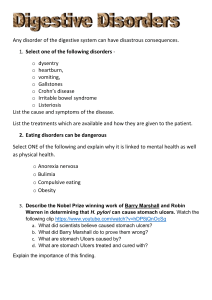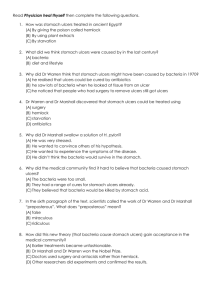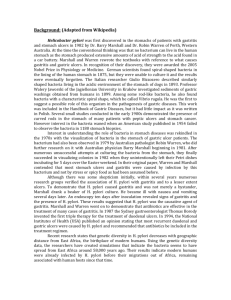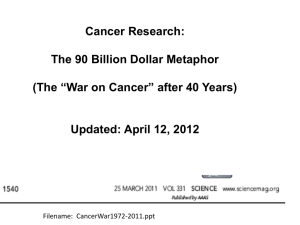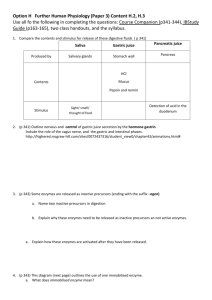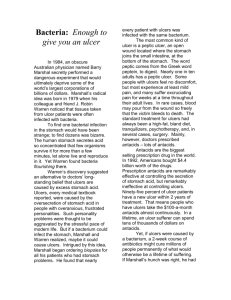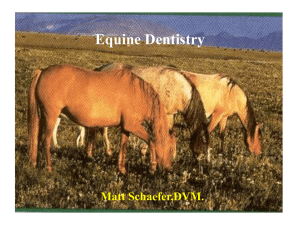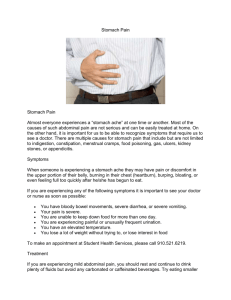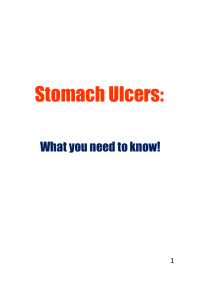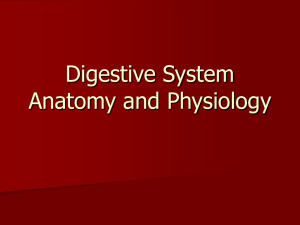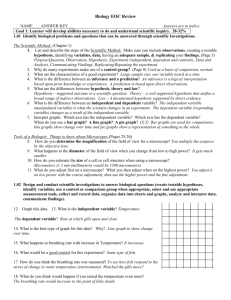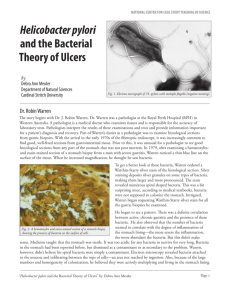AntibioticsforUlcers..
advertisement
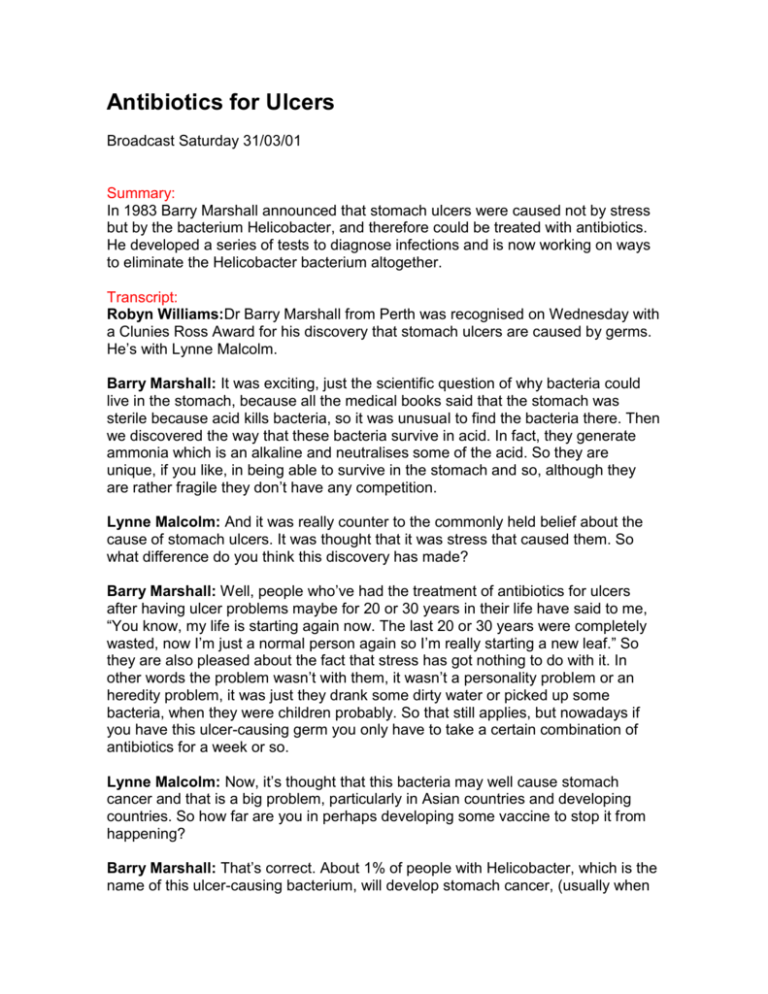
Antibiotics for Ulcers Broadcast Saturday 31/03/01 Summary: In 1983 Barry Marshall announced that stomach ulcers were caused not by stress but by the bacterium Helicobacter, and therefore could be treated with antibiotics. He developed a series of tests to diagnose infections and is now working on ways to eliminate the Helicobacter bacterium altogether. Transcript: Robyn Williams:Dr Barry Marshall from Perth was recognised on Wednesday with a Clunies Ross Award for his discovery that stomach ulcers are caused by germs. He’s with Lynne Malcolm. Barry Marshall: It was exciting, just the scientific question of why bacteria could live in the stomach, because all the medical books said that the stomach was sterile because acid kills bacteria, so it was unusual to find the bacteria there. Then we discovered the way that these bacteria survive in acid. In fact, they generate ammonia which is an alkaline and neutralises some of the acid. So they are unique, if you like, in being able to survive in the stomach and so, although they are rather fragile they don’t have any competition. Lynne Malcolm: And it was really counter to the commonly held belief about the cause of stomach ulcers. It was thought that it was stress that caused them. So what difference do you think this discovery has made? Barry Marshall: Well, people who’ve had the treatment of antibiotics for ulcers after having ulcer problems maybe for 20 or 30 years in their life have said to me, “You know, my life is starting again now. The last 20 or 30 years were completely wasted, now I’m just a normal person again so I’m really starting a new leaf.” So they are also pleased about the fact that stress has got nothing to do with it. In other words the problem wasn’t with them, it wasn’t a personality problem or an heredity problem, it was just they drank some dirty water or picked up some bacteria, when they were children probably. So that still applies, but nowadays if you have this ulcer-causing germ you only have to take a certain combination of antibiotics for a week or so. Lynne Malcolm: Now, it’s thought that this bacteria may well cause stomach cancer and that is a big problem, particularly in Asian countries and developing countries. So how far are you in perhaps developing some vaccine to stop it from happening? Barry Marshall: That’s correct. About 1% of people with Helicobacter, which is the name of this ulcer-causing bacterium, will develop stomach cancer, (usually when they’re in their 60s or 70s, so we don’t lose too much sleep over it) and around the world that might be 800,000 a year would die from stomach cancer caused by this germ. So there is a lot of interest in preventing it and protecting certain populations from it. Several breakthroughs have been made recently and in Asian countries they have a little animal called a Mongolian gerbil, it’s like a little mouse, but we don’t let them into Australia because they would decimate the wheat crop. But these gerbils are like humans in that they develop stomach cancer very quickly when they are infected with this bacterium. So the next step is to find out which components of the bacteria are leading to the stomach cancer problem and probably develop a vaccine or a specific treatment for that type of bacteria. Lynne Malcolm: And is that likely to happen here? Are you on the cutting edge of this work at the moment in Australia? Barry Marshall: Well, there is cutting edge research. In fact, one of the largest research teams in Helicobacter is based in Sydney and we’re a lesser cog in the wheel in Perth, and I should also say in Melbourne since I’m here today, that a lot of good work is being done in Melbourne. So there are experts here and Commonwealth Serum Laboratories has been funding a research project into vaccines into for H-pylori for several years and I’m sure that they have some patents and intellectual property and they are collaborating with international groups. Because it is actually a difficult problem but we would hope that in the next five years we would see vaccine trials against this germ. And in countries such as Peru or perhaps Africa and China, where they haven’t been able to clean up the drinking water properly, it would be useful for the population to be able to take some kind of vaccine which protects their children especially from catching this germ. Guests on this program: Professor Barry Marshall Research Professor of Microbiology University of Western Australia 35 Stirling Highway Crawley WA 6009 Tel: +61 (0)8 9346 4815 bmarshall@hpylori.com.au Further information: Helicobacter pylori Foundation http://www.helico.com/
